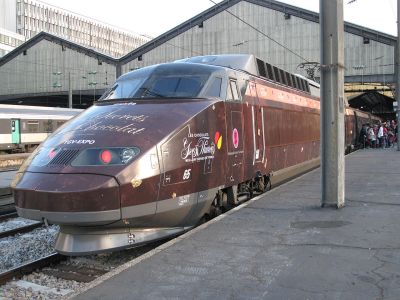The
electromagnetic interferences of trains themselves with multiple railway
signalling and communication systems has become an important concern
for rolling stock manufacturers and rail infrastructure operators.
Available harmonised standards for electromagnetic compatibility (EMC)
amongst existing railways do not ensure interoperability between trains
and signalling systems. This situation causes significant losses in time
and resources for manufacturers, both in terms of system integration
and track signalling and might be a risk for operators.
Funded by the EU, the project 'Test of rolling stock electromagnetic compatibility for cross-domain interoperability' (TREND)
studied and designed the specified test sites and test setups that
enables harmonising freight and passenger rolling stock approval tests
for EMC focusing on interferences with communication and railway
signalling systems, reproducing representative worst-case conditions for
steady-state and transient short-circuit currents.
Dedicated 3D electromagnetic model have been dedicated to each one
of the communication and signalling systems of the rolling stock and the
rail infrastructure. There were classified in four categories: spot
signalling (balise transmission module), direct-current track circuit,
Global System for Mobile Communications – Railway (GSM-R) and
broadcasting service systems. Thanks to the safety and availability
requirements of these systems, TREND defined the test procedure that
recreates representative worst cases, concerning the rolling stock
electromagnetic emissions that could affect system interoperability,
including transient phenomena. Actually the specific study of the
transient signals into their time-frequency footprints has been the key
stone of the scientific step forward of the project.
Railway transport is a key area of development from an economical
and environmental point of view. The steps taken by TREND should help
reducing the time to market of the equipped rolling stocks, improve the
availability of railway infrastructure and passenger safety.
Furthermore, enhanced interoperability and cross-operation between
different rail networks is crucial to avoid obstacles found in the use
of large European lines and of equipment from different suppliers.
 EN
EN  CS
CS DE
DE ES
ES FR
FR HU
HU IT
IT PL
PL PT
PT РУ
РУ SK
SK TR
TR УК
УК AR
AR 中文
中文







